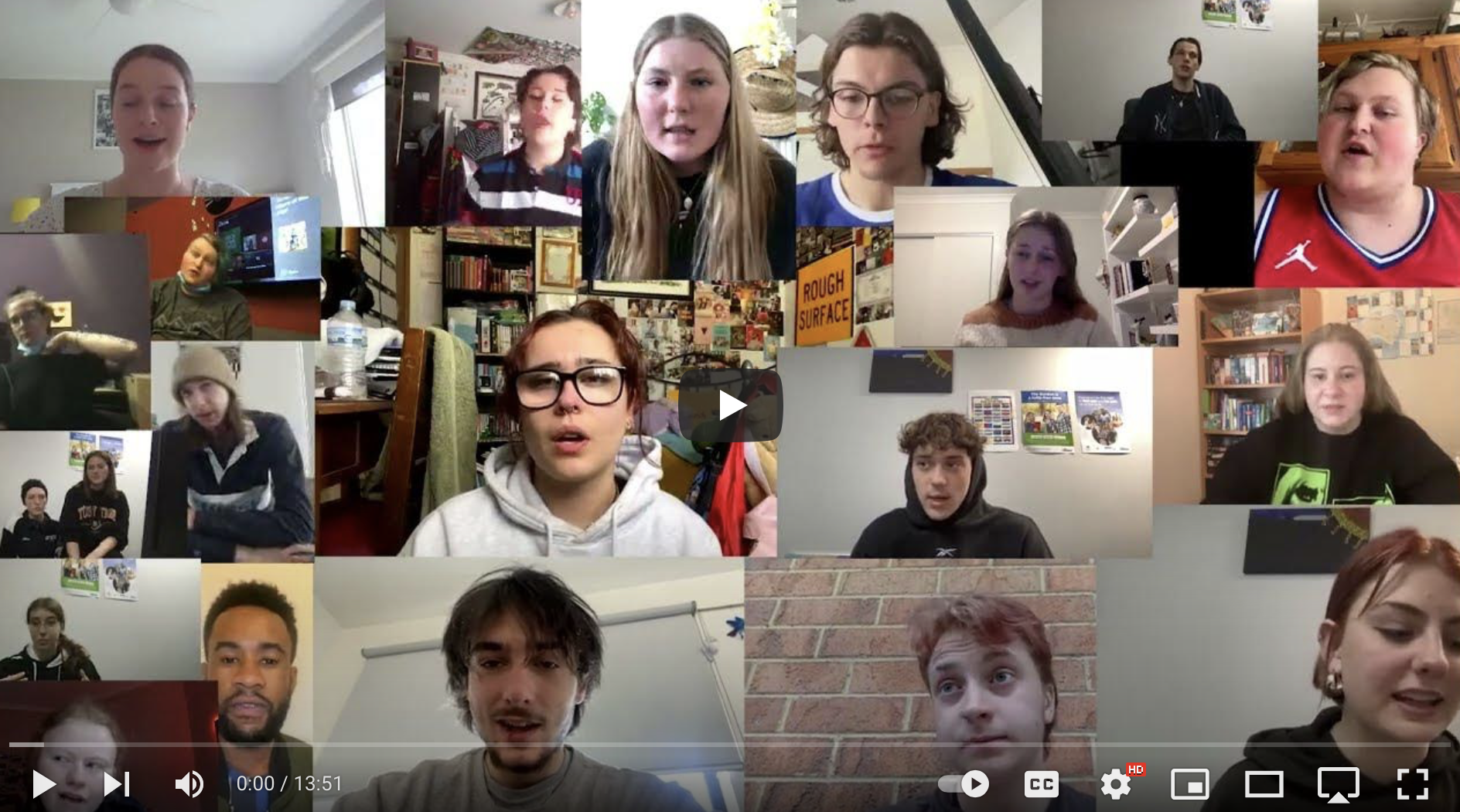
In July, together with the Centre for Research in Educational Impact (REDI), we hosted a webinar to launch a mini-documentary, Crisis + Change + Growing Up in Geelong, and the final report from the research project: COVID-19 and Disadvantaged Young People’s Education and Employment Aspirations: A Longitudinal Study of Young People’s Transitions in Geelong.
The webinar was introduced by project team member Dr James Goring of Deakin’s School of Education. James outlined the rationale of the project, including the key challenges – in the short, medium and longer term – facing particular populations of young people in particular places.
The project participants were young people aged 16-24 years who lived in the City of Greater Geelong and had contact with one of the key stakeholders in the Geelong Region Local Learning and Employment Network (GRLLEN) and/or Skilling the Bay.
Innovative, platform based, video capture technologies were used to conduct a series of video interviews with young people as the researchers tracked their education, training and employment pathways in COVID ‘normal’ socio-ecologies that were profoundly shaped by historical and contemporary processes of disadvantage and marginalisation.
James outlined how this extensive video footage was used to create a mini-documentary titled Crisis + Change + Growing Up in Geelong that showcased the voices of young people in Geelong as they examined their experiences of the pandemic and reflected on their changing hopes and aspirations in the context of this and other crises.
In watching the video you should look out for the ways in which Carmen, Brandon, Hannah, Mackenzie, Madeline, Jack, James, Emilie, Marisa, Elliot, Josh and Edie, reflect on a number of issues and how some of them experience significant change during this time.
Mr Wayne Elliott, the Chief Executive of the Geelong Region Local Learning and Employment Network (GR-LLEN), briefly responded to the mini-documentary. Wayne observed how the powerful representations of young people’s voices in the documentary provided stakeholders and the Geelong community with valuable insights into the challenges that young people identified.
Professor Peter Kelly then briefly reviewed the four key themes that emerged from the research:
- Health and Wellbeing
- Education, Training and Employment Pathways
- Hopes and Aspirations
- Voice and Participation
Peter highlighted the inter-connections of these themes, as a way to think about what intergenerational justice can look like in this place, at this time.
Broadly speaking, intergenerational justice is a concept that addresses the fairness and equity of resource distribution, opportunities, and decision-making processes across different generations, particularly in how they impact the well-being of younger and future generations.
Environmental science philosopher Professor Emeritus Bryan Norton observes:
- The question at issue is a question about the present; it is a question of whether the community will, or will not, take responsibility for the long-term impacts [of] its actions …. [and in so doing] rationally choose and implement a [respectful] bequest package – a trust or legacy – that they will pass on to future generations.
Ms Cynthia Scherer, the CEO of the Anthony Costa Foundation which funded the research, responded to both the mini-documentary and the report findings. Cynthia highlighted the significant ongoing work being done in Geelong in relation to a range of the issues identified in the report, and looked forward to continuing to support future work and research as the crises identified in the research continue to impact young people in the Greater Geelong region.
The event was the first in a planned series of Intergenerational Dialogues for a Planet in Crisis.
At a time that the UN Secretary General has called ‘a code red for humanity’, and when young people in their millions have taken to the streets to protest inaction in the face of climate change, there is an urgent need to engage in dialogue across generational divides about what sustainable, regenerative and just futures might look like for young people and future generations if they are shaped by a ‘radical politics of hope’.
Bringing together young people, community groups, politicians and policy makers, businesses and academics, this series of face-to-face events and webinars will be grounded in place based engagements with planetary wide challenges and opportunities in what the World Economic Forum has called times of ‘permacrisis’.

